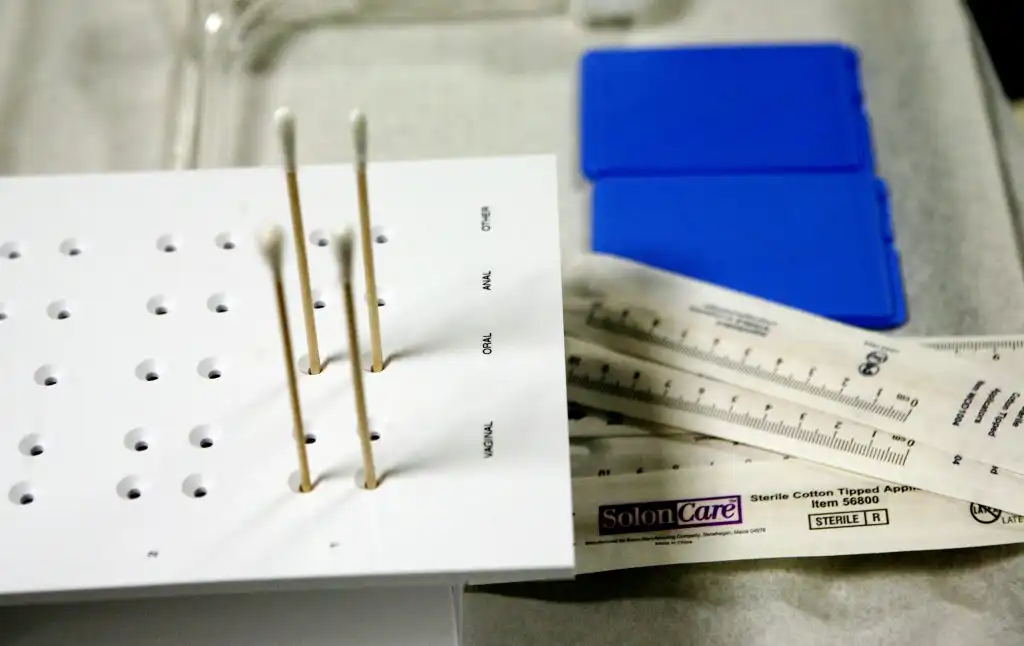Image: Close-up of a sexual assault forensic evidence kit; via End The Backlog.
Martha “Marty” Goddard was a crime victims’ advocate in Chicago who devised the original idea for the rape kit in the early 1970s in order to standardize evidence collection in sexual assault cases. She founded the Citizens Committee for Victim Assistance, secured funding, helped distribute the kits to hospitals, and laid groundwork for what became known as the SAFE or Vitullo Evidence Collection Kit.
Otherwise known as a sexual assault medical exam, or Sexual Assault Forensic Exam (SAFE) or rape kit, the SAFE kit is a specialized medical process designed to both care for survivors and collect evidence.
These exams are typically conducted by Sexual Assault Nurse Examiners (SANEs) or other trained professionals in hospitals, clinics, or designated crisis centers. In addition to gathering forensic evidence, a SAFE kit also ensures survivors receive treatment for injuries, testing for sexually transmitted infections, and access to emergency contraception if needed.
Why Evidence Collection Is Important
Even if you are unsure about reporting to police, having a SAFE exam preserves evidence should you decide to pursue legal action later. Time matters: evidence is best collected within 72 to 120 hours after the assault, though some facilities may perform exams beyond that window. The exam includes documenting injuries, collecting DNA samples, and recording survivor statements. Preserved kits can play a critical role in investigations and prosecutions, especially when survivors choose to report later.
Your Rights During the Exam
Survivors always have the right to decline any part of the exam. You may stop the process at any time, and you can request the presence of an advocate for emotional support. In many states, survivors can receive a rape kit free of charge, regardless of whether they choose to report to law enforcement. Hospitals are legally required to inform you of your rights, including confidentiality protections and access to resources.
Where to Get a SAFE Exam
Availability varies by state and county. Some hospitals have specially trained SANEs on staff while others may transfer survivors to a partner facility. Calling a local sexual assault crisis hotline or the Rape, Abuse & Incest National Network (RAINN) at 1-800-656-4673 can connect you to nearby exam locations. In some areas, law enforcement may transport survivors, but you do not have to file a police report to access medical care.
Addressing the Backlog
Unfortunately, many SAFE kits have historically gone untested, delaying justice for thousands of survivors. The nonprofit End the Backlog has shined a light on this national crisis and works to ensure every rape kit is tested. Their advocacy has helped reform state policies and secure funding so survivors’ evidence is not ignored. End the Backlog’s work reveals that it’s not only about getting an exam, it’s also demanding accountability in how evidence is handled.
Taking the Next Step
Just the thought of having to get a SAFE exam can feel overwhelming. But actually receiving one is an important step for both your health and for potential justice. Even if you never pursue a criminal case, the care you receive from trained professionals can support your recovery. If you are unsure, remember that an advocate can walk you through the process and answer your questions at every stage.
